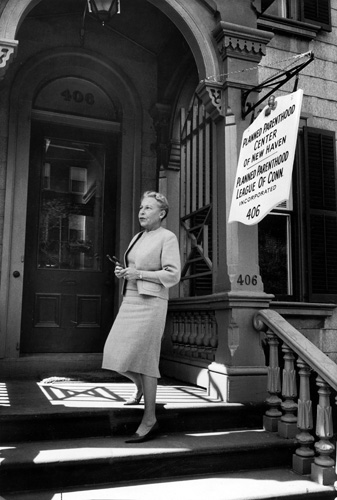News & Commentary
Aug 17, 2015
ACLU Objects To TF Green Airport Participation In Homeland Security 'Behavior Detection' Experiment
The American Civil Liberties Union of Rhode Island today raised deep concerns about a decision by T.F. Green Airport officials to participate in a Department of Homeland Security field test designed to expand a largely discredited “behavior detection” program that attempts to determine travelers’ motives of “mal-intent” by monitoring their mundane actions.

Aug 17, 2015
ACLU of Rhode Island Statement On HPV Vaccine Mandate For Students
The ACLU of Rhode Island recognizes the Department of Health’s legitimate interest in promoting the HPV vaccine for both boys and girls. We also appreciate that there are some illnesses that warrant imposition of mandatory vaccinations in order to protect children attending school. However, excluding middle and high school students from school for being unvaccinated against HPV strikes us as an unfitting and disproportionate remedy.

Jun 22, 2015
ACLU Statement On U.S. Supreme Court Ruling On Hotels Sharing Guest Lists With Police
ACLU of Rhode Island executive director Steven Brown issued the following statement today in response to the U.S. Supreme Court’s decision this morning in City of Los Angeles v. Patel, ruling unconstitutional a city ordinance that required hotel operators to turn over to police upon request registry information about their guests: “Earlier this year it was revealed that Motel 6 in Warwick had entered into an agreement with Warwick Police to routinely turn over its daily guest list of patrons. This policy was roundly condemned by the ACLU of Rhode Island and others as a significant intrusion on guests’ privacy. As a result of the outcry, the motel agreed to revise its policy. “At the same time, it remained unclear exactly how significant that change in policy was. There was some suggestion that the motel, without any formal legal process or cause to believe criminal activity was occurring, would permit Warwick police officers to view the guest list at the motel upon request, while no longer routinely sending it over to the police department. If so, this superficial change in policy has only perpetuated the serious intrusion of privacy that Motel 6 guests are being subjected to. “Today’s Supreme Court decision makes clear that establishments like Motel 6 have a constitutional right to keep their guest registries confidential in the absence of the use of a formal legal process by police or exigent circumstances. With this constitutional authority now available to establishments to protect the privacy of their guests, the ACLU hopes and expects that Motel 6 and other public accommodations across the state will halt any current practices to the contrary. As we have said before, hotels should be treating their patrons as guests, not as participants in a police line-up."

May 01, 2015
ACLU Statement On "Change" In Motel 6 Policy of Sharing Guest List
ACLU of Rhode Island executive director Steven Brown issued the following statement in response to recent news reports addressing a “change” in Motel 6’s policy of handing over its guest list to Warwick police:

Apr 15, 2015
ACLU Blasts Agreement Between Police and Motel 6 To Share Motel Guest List
The American Civil Liberties Union of Rhode Island today blasted an agreement reached between Warwick police and a local Motel 6 to share the motel’s daily guest list of patrons, and to do so without notifying patrons. The ACLU called the agreement an invasion of guests’ privacy that sets a troubling precedent. ACLU of Rhode Island executive director Steven Brown said of the agreement: “When visitors go to a hotel for the night, they expect to be treated like guests, not potential criminals. Yet the blanket agreement between the Warwick police and the motel – sharing the guest list of all of its patrons on a daily basis – is hardly the sort of ‘hospitality’ one anticipates from such an establishment. A family on vacation should not be fearful that police may come knocking on the door in the middle of the night, courtesy of the motel, because Dad has an outstanding parking ticket he never paid. “Although Motel 6’s national policy claims to ‘recognize the importance’ of protecting the privacy of guest information, this agreement makes a mockery of that pretense. It adds insult to injury that the motel does not even plan to make customers aware that it is sharing guest information with the police. Motel officials should feel some obligation to let patrons know that a courtesy police check comes with the mint on the pillow. “There are many ways to deal with illegal activities at the motel without engaging in such a wholesale invasion of patrons’ privacy. In the absence of some suspicion of wrongdoing, a person on vacation should not expect their private information to be shared with the government in this way. We are also deeply concerned about the precedent this agreement sets, for it can only embolden police to press for similar policies from other establishments. “The ACLU urges that this sharing policy be immediately rescinded. At the very least, the motel should fess up to its customers as to exactly what it is doing so they can make an informed choice as to whether this is the hospitality they were looking for. When Motel 6 says in its ads that they’ll ‘leave the light on for you,’ most people probably don’t realize they’re talking about the light of a police siren.”

Stay Informed
Sign up to be the first to hear about how to take action.
By completing this form, I agree to receive occasional emails per the terms of the ACLU’s privacy statement.
By completing this form, I agree to receive occasional emails per the terms of the ACLU’s privacy statement.

